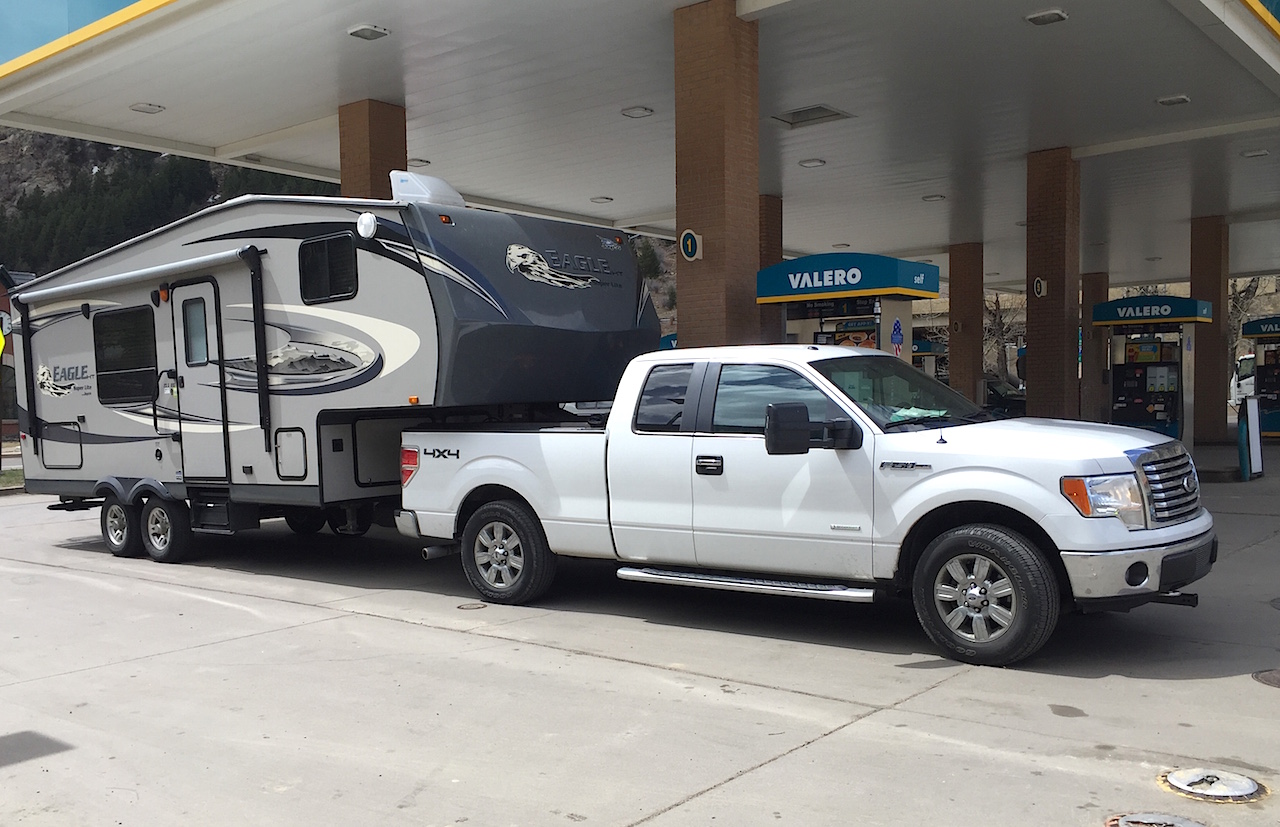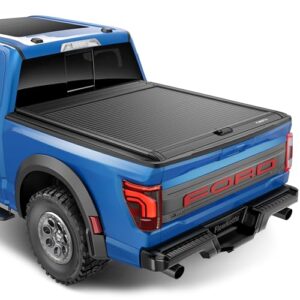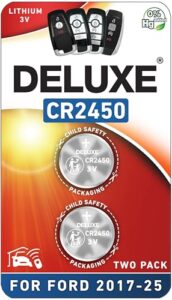As an Amazon Associate, I earn from qualifying purchases
Are you wondering if your Ford F150 can handle towing a 5th wheel? Whether you’re planning a weekend getaway or a long road trip, knowing your truck’s towing capability is key to a safe and smooth experience.
You don’t want to risk damage to your vehicle or endanger your journey by towing something it can’t manage. You’ll discover exactly what it takes for your Ford F150 to pull a 5th wheel, what factors affect towing capacity, and how to prepare your truck for the task.
Keep reading to make sure your adventure starts off on the right foot.

Credit: www.smart-stroy.com
Ford F150 Towing Capacity
The Ford F150 is a strong and popular truck. It can tow many types of trailers safely. Understanding its towing capacity helps you decide what it can pull.
Different F150 models have different towing limits. These depend on the engine, axle ratio, and other features. Knowing these details is important for towing a 5th wheel trailer.
Engine Options And Their Impact
The F150 offers several engines. Each engine affects towing power. The 3.3L V6 engine has a lower towing limit. The 5.0L V8 engine has more strength for heavy loads.
Turbocharged EcoBoost engines provide a good balance. They deliver strong power with good fuel efficiency. This helps with towing heavier trailers smoothly.
Max Towing Capacity By Model
The max towing capacity ranges from about 8,200 to 14,000 pounds. The highest capacity is available with the 3.5L EcoBoost V6 engine. This setup is best for towing bigger 5th wheels.
Lower trims with smaller engines have lower capacity. Always check your truck’s specific towing rating before hitching a trailer.
Factors Affecting Towing Performance
Towing depends on more than just engine power. The truck’s axle ratio changes towing ability. A higher ratio improves towing strength but can reduce fuel economy.
Proper trailer brakes and hitch setup also matter. Using the right equipment keeps towing safe and stable. Weight distribution systems help reduce trailer sway.
Credit: www.forestriverforums.com
What Is A 5th Wheel Trailer
A 5th wheel trailer is a type of RV or camper. It connects to a special hitch in the bed of a pickup truck. This hitch is called a 5th wheel hitch. It sits above or slightly in front of the rear axle of the truck.
This design makes the trailer stable and easier to tow. It also allows for a larger trailer size compared to traditional hitch types. Many people choose 5th wheel trailers for camping or traveling long distances.
How Does A 5th Wheel Trailer Attach To A Truck?
The trailer has a large metal plate called a kingpin underneath. This kingpin locks into the 5th wheel hitch on the truck. The hitch then pivots around the kingpin, allowing smooth turns.
Because the connection is above the truck’s rear axle, it balances the weight better. This setup reduces sway and improves control while driving.
What Are The Advantages Of A 5th Wheel Trailer?
5th wheel trailers offer more living space inside. They often have high ceilings and multiple rooms. The design also allows for better weight distribution on the truck.
This means safer towing and less stress on the truck’s engine and brakes. Many models come with extra storage and slide-out sections for more room.
Who Uses 5th Wheel Trailers?
Families and travelers who want a home-like feel use these trailers. They are popular for long road trips and full-time RV living. People who own heavy-duty trucks often prefer 5th wheel trailers.
They need a strong truck to safely tow the larger weight of these trailers. Many users enjoy the comfort and space that 5th wheel trailers provide.
Comparing 5th Wheel And Conventional Trailers
Choosing the right trailer matters for towing ease and safety. Two popular types are 5th wheel and conventional trailers. Each has unique features that affect how a Ford F150 pulls them.
Understanding these differences helps pick the best trailer for your truck and needs. Let’s explore how these trailers compare in design, towing, and handling.
Design And Hitching Differences
5th wheel trailers attach inside the truck bed over the rear axle. This setup spreads weight more evenly. Conventional trailers hitch to the truck’s rear bumper or frame. They use a ball and coupler connection.
The 5th wheel hitch is larger and more stable. It limits turning radius less than a conventional hitch. Conventional trailers can be easier to hitch but may sway more.
Towing Capacity And Weight Distribution
5th wheel trailers usually weigh more but balance weight better on the truck. This balance improves stability and control. Conventional trailers place more weight behind the truck. This can increase rear suspension strain.
The Ford F150 handles both types well if within towing limits. Proper weight distribution is key to safe towing.
Driving And Maneuverability
5th wheel trailers offer smoother towing and less sway. They allow tighter turns and better control on the road. Conventional trailers can be harder to back up and control in wind.
Both require practice to tow safely. The 5th wheel’s design generally makes driving easier.
Ford F150 Models And Towing Limits
The Ford F150 is a popular truck known for its strong towing ability. It comes in many models, each with different power and features. Knowing the towing limits of each model helps you decide if it can pull a 5th wheel trailer.
Each F150 model has its own maximum towing capacity. This depends on the engine type, cab size, and bed length. Understanding these limits is key for safe and efficient towing.
Ford F150 Engine Options And Towing Capacity
The F150 offers several engines, from a 3.3L V6 to a 3.5L EcoBoost V6. The bigger the engine, the higher the towing capacity. The 3.5L EcoBoost is the strongest and can tow the heaviest loads.
Cab And Bed Configurations Affect Towing
The truck’s cab size and bed length also matter. A SuperCrew cab is larger but may reduce towing capacity. Longer beds often allow for better trailer hitch placement and stability.
Towing Packages And Their Impact
Ford offers towing packages to boost the F150’s capabilities. These packages include features like upgraded cooling, hitch receivers, and trailer brake controllers. They help the truck tow heavier trailers safely.
Maximum Towing Limits For Ford F150 Models
The highest towing limit for an F150 is around 14,000 pounds. This applies to the 3.5L EcoBoost with the Max Trailer Tow Package. Other models can tow less, ranging from 5,000 to 12,000 pounds.
Essential 5th Wheel Hitch Types
Choosing the right 5th wheel hitch is key for safe towing with a Ford F150. Different hitches offer various features and benefits. Understanding these types helps pick the best fit for your truck and trailer.
Each hitch type affects stability, ease of use, and weight capacity. Knowing these options makes towing simpler and safer.
Sliding 5th Wheel Hitch
This hitch slides backward on rails to increase turning space. It helps avoid hitting the truck’s cab during sharp turns. Sliding hitches work well with shorter beds like the Ford F150’s.
Fixed 5th Wheel Hitch
Fixed hitches stay in one place and do not move. They provide a strong connection and are simple to install. This hitch type suits long bed trucks but can limit tight turns.
Pin Box Hitch
The pin box attaches directly to the trailer’s front. It connects with the 5th wheel hitch on the truck. Different pin box designs improve ride smoothness and reduce sway.
Gooseneck To 5th Wheel Adapter
This adapter converts a gooseneck hitch to a 5th wheel setup. It is useful if the truck has only a gooseneck hitch installed. It allows towing a 5th wheel trailer without extra hardware.
Installation Of 5th Wheel Hitch On F150
Installing a 5th wheel hitch on a Ford F150 allows you to tow large trailers safely. This hitch fits in the truck bed and connects firmly to the trailer. Proper installation is key for stability and control on the road.
Many F150 owners choose this hitch for its strength and ease of use. The installation process requires some tools and careful steps. You can do it yourself or hire a professional.
Choosing The Right 5th Wheel Hitch For Your F150
Pick a hitch that matches your truck’s towing capacity. Check the weight limits of your F150 to avoid overload. Select a hitch model designed for your truck’s bed size and style.
Preparing Your F150 For Installation
Clear the truck bed and remove any bed liners. Clean the area where the hitch will mount. Gather all tools needed, such as wrenches and drills, before starting.
Step-by-step Installation Process
Start by measuring the bed to position the hitch correctly. Attach the mounting brackets to the truck frame. Secure the hitch head to the brackets with bolts. Tighten all bolts to the recommended torque settings. Test the hitch for stability before using it.
Safety Tips For 5th Wheel Towing
Towing a 5th wheel with a Ford F150 requires careful attention to safety. Keeping control on the road protects you and others. Following simple safety tips helps prevent accidents and damage.
Proper preparation and cautious driving reduce risks. Safety starts before you hook up your trailer. Stay alert and drive smart for a safe towing experience.
Check Your Truck And Trailer Connection
Always inspect the hitch before driving. Make sure the 5th wheel is locked securely. Check for any loose parts or damage. A strong connection prevents dangerous detachment.
Balance Your Load Properly
Distribute weight evenly in the trailer. Avoid overloading the rear or front. Proper balance improves stability and handling. It reduces sway and tire wear.
Use Mirrors And Signals
Adjust mirrors to see all around the trailer. Use turn signals early to show your moves. Clear visibility helps other drivers understand your intentions. Avoid sudden lane changes and turns.
Drive At Safe Speeds
Keep your speed lower than usual. High speeds increase sway and reduce control. Slow down on curves and rough roads. Allow extra distance for stopping safely.
Practice Braking And Steering
Test brakes before hitting the road. Make gentle turns and slow stops. Avoid sharp moves that can tip the trailer. Smooth driving keeps everything stable and secure.

Credit: wanderingwiththewilliamsfamily.com
Common Challenges With 5th Wheel Towing
Towing a 5th wheel with a Ford F150 can bring some challenges. Knowing these helps you prepare better and tow safely. The 5th wheel is heavy and large. It changes how the truck drives and handles on the road.
Drivers often face issues with weight, turning, and braking. These can make towing stressful. Understanding common problems can help avoid accidents and damage.
Weight Distribution And Payload Limits
The Ford F150 has a maximum payload it can carry. Exceeding this limit risks damage to the truck and trailer. Proper weight distribution is key. Too much weight on the hitch can harm the truck’s rear suspension. Balance the load inside the trailer to reduce stress on the truck.
Turning Radius And Maneuverability
5th wheel trailers are longer and wider than typical trailers. This affects turning radius. Sharp turns become difficult. Drivers need more space to make safe turns. Tight spots and narrow roads can be challenging to navigate.
Braking And Stopping Distance
The extra weight increases stopping distance. The truck’s brakes work harder towing a 5th wheel. Trailer brakes help but require proper setup. Poor braking control can lead to accidents. Always test brakes before driving on busy roads.
Maintenance For F150 And Hitch
Proper maintenance keeps your Ford F150 and hitch ready for heavy towing. Regular checks help avoid breakdowns and improve safety. A well-maintained truck and hitch last longer and perform better.
Small efforts in maintenance save big costs later. Watch for wear and tear often. Clean and lubricate parts to reduce friction and damage.
Inspecting The Hitch Regularly
Check the hitch for cracks, rust, or loose bolts. Tighten bolts if they feel loose. Rust weakens the metal, so remove it quickly. Use a wire brush and rust remover. A clean hitch performs better and lasts longer.
Lubricating Moving Parts
Apply grease to the hitch ball and moving parts. Lubrication prevents wear and reduces noise. Use the right type of grease for your hitch. Wipe off old grease before applying new. This keeps the hitch smooth and easy to use.
Checking The F150’s Tires And Brakes
Inspect tires for correct pressure and tread depth. Proper tires improve towing stability and fuel efficiency. Check brake pads and fluid regularly. Strong brakes are crucial for heavy towing safety.
Maintaining The Suspension System
Look for worn or damaged suspension parts. Good suspension helps control the truck while towing. Replace damaged shocks or springs quickly. This keeps the ride smooth and stable.
Upgrading Your F150 For Better Towing
Upgrading your Ford F150 can improve its towing ability significantly. The stock setup might not be enough for heavy 5th wheel trailers. Making the right upgrades helps your truck pull better and stay safe on the road.
Some changes focus on power, while others improve stability and control. These upgrades reduce stress on your truck and trailer. They also make towing easier and more comfortable for you.
Enhanced Engine Performance
Boosting your F150’s engine power can increase towing capacity. Upgrading to a performance air intake or exhaust system helps the engine breathe better. This leads to more horsepower and torque. A stronger engine pulls heavier loads with less effort.
Upgraded Suspension System
A heavy trailer puts extra strain on your truck’s suspension. Installing stronger springs or airbags supports the added weight. This upgrade improves ride quality and reduces sway. Your F150 handles the trailer more smoothly and safely.
Improved Braking System
Stopping a heavy 5th wheel requires better brakes. Upgrading brake pads and rotors increases stopping power. Adding a trailer brake controller helps synchronize your truck and trailer brakes. This reduces wear and improves control during braking.
Heavy-duty Towing Hitch
A strong, properly rated 5th wheel hitch is essential. It connects your trailer securely to the truck bed. Upgrading to a heavy-duty hitch ensures safe towing. It also helps distribute weight evenly for better balance.
Cooling System Enhancements
Towing heavy loads heats up the engine and transmission. Upgrading the cooling system prevents overheating. Adding an auxiliary transmission cooler or radiator fan helps maintain safe temperatures. This keeps your truck running smoothly on long hauls.
Frequently Asked Questions
Can A Ford F150 Safely Tow A 5th Wheel Trailer?
Yes, many Ford F150 models can tow a 5th wheel trailer with proper hitch installation.
What Is The Maximum 5th Wheel Towing Capacity Of A Ford F150?
The towing capacity varies but can reach up to about 13,200 pounds in some F150 models.
Do I Need A Special Hitch For 5th Wheel Towing On An F150?
Yes, a 5th wheel hitch installed in the truck bed is necessary for safe towing.
Can A Regular Ford F150 Handle Heavy 5th Wheel Trailers?
It depends on the model and engine; heavier trailers may need a more powerful version.
How Does Payload Affect 5th Wheel Towing On A Ford F150?
Higher payload capacity helps support the 5th wheel hitch and trailer weight safely.
Is A Ford F150 Better Than A Larger Truck For 5th Wheel Towing?
F150 is good for medium trailers; larger trucks may tow heavier 5th wheels more easily.
What Engine Type Is Best For Towing A 5th Wheel With A Ford F150?
V8 engines usually provide better towing power and stability for 5th wheel trailers.
How Does Adding A 5th Wheel Hitch Affect Ford F150 Bed Space?
The hitch takes up truck bed space but allows secure trailer connection and control.
Can I Tow A 5th Wheel Trailer With A Ford F150 Without A Brake Controller?
No, a brake controller is required for safe stopping and legal towing practices.
What Safety Tips Are Important When Towing A 5th Wheel With An F150?
Check hitch installation, trailer lights, brakes, and keep speed moderate for safe towing.
Conclusion
A Ford F150 can pull a 5th wheel with the right setup. Check the truck’s towing capacity carefully. Match the hitch and trailer weight to avoid problems. Always use proper towing gear and follow safety rules. Driving slowly and smoothly helps control the load.
Regular maintenance keeps the truck ready for heavy towing. Choose the right model and equipment for your needs. Safe towing makes trips easier and more enjoyable. Remember, preparation is key for a good towing experience.
As an Amazon Associate, I earn from qualifying purchases


